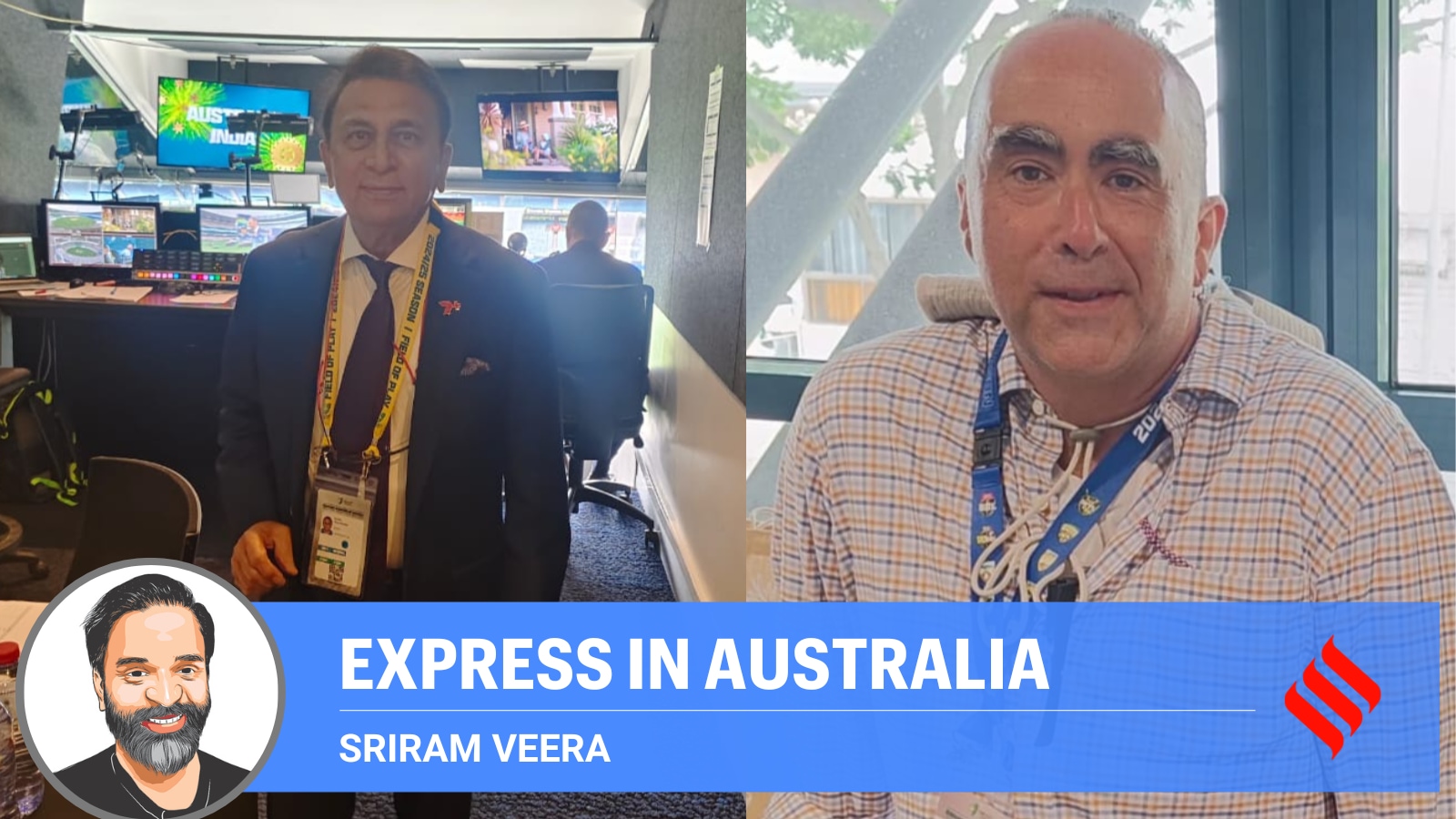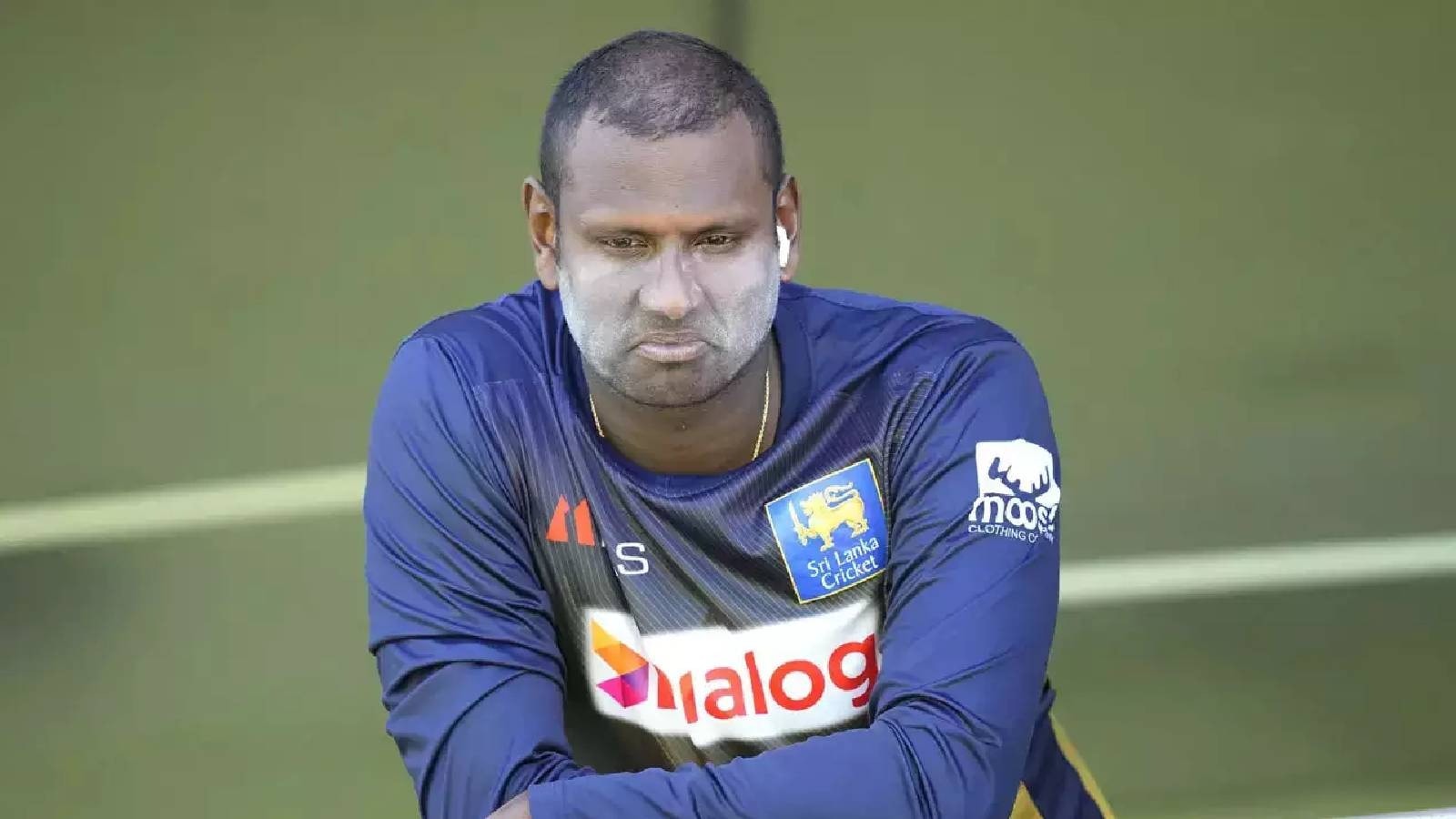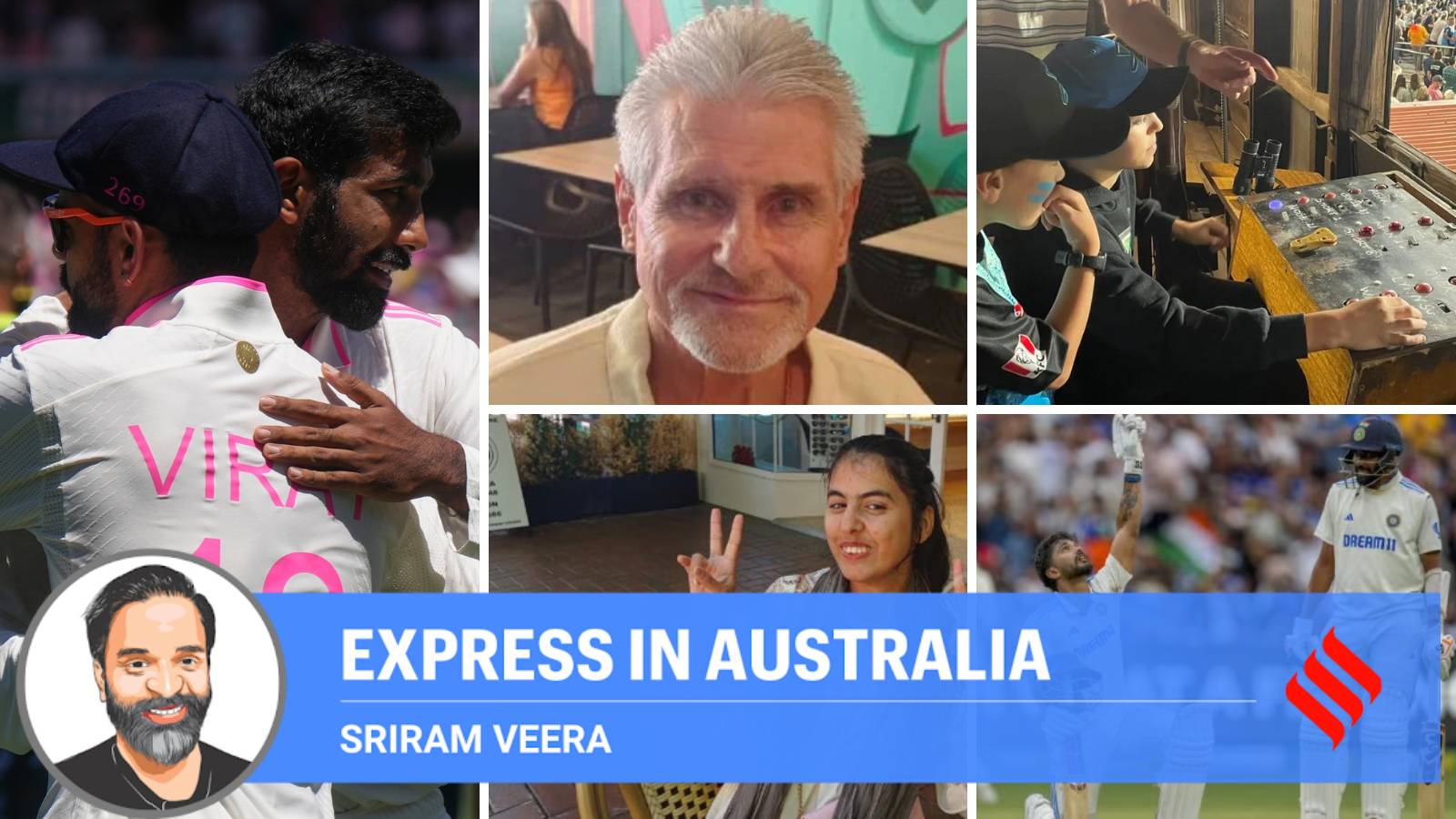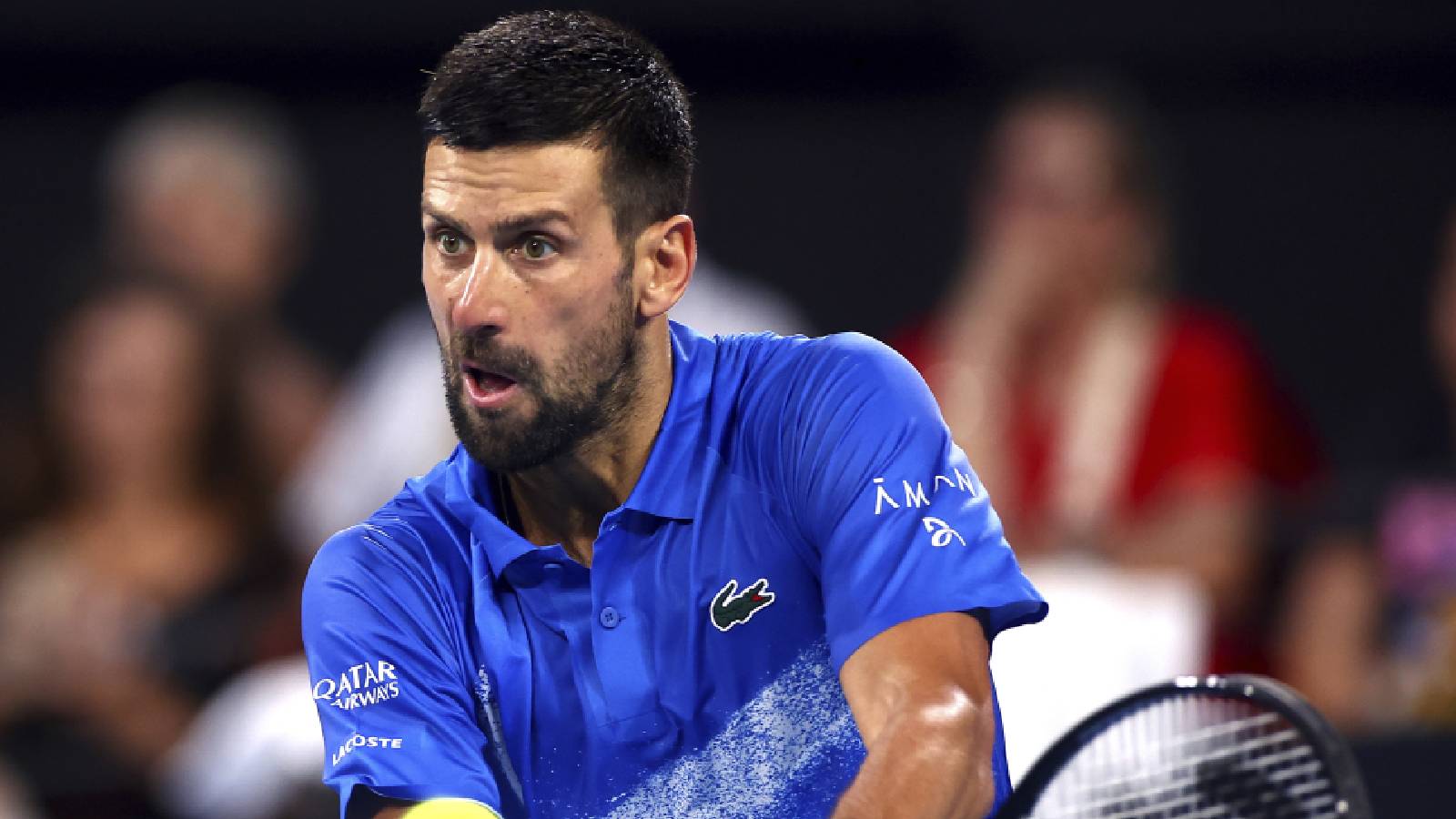Bishan Singh Bedi’s son Gavasinder is waiting to meet Sunil Gavaskar. Harsha Bhogle moves into the commentators cubicle in Brisbane, whispers something into the ears of Gavaskar, who perks up, looks at the entrance, and rushes out. The former Australian pacer Carl Rackemann arrives to speak to ‘Sunny’. Gavaskar greets, introduces Bedi’s son, and Gavasinder tells how his father had named him after Gavaskar. Warm smiles, all around.
Suddenly, Gavasinder says, “Sunny sir, sometimes I wonder if you hadn’t scored that hundred and double hundred at the Port of Spain Test in 1971, what I would have been named?!” Gavaskar smiles and rattles out the names of a couple of other Indians on that tour. “Maybe one of them would have been turned around for you!” he says,
Watching Gavaskar at the Australian grounds has been an experience in itself. The most well-known Indian voice, the other former Australian cricketers are respectful and yet because such is his demeanour that jokes abound when he is around. Allan Border, with whom he has had a special bond going back the end 70’s, and Gavaskar often address each other fondly with a special term in Hindi, which can’t be mentioned in print.
It’s startling and sweetly cute to hear the two legends call out each other like that. At Perth, Gavaskar was worried about the health of Border, who has publicly talked about suffering from Parkinson’s. By Brisbane, Border seemed to have gotten better, and the pair was often seen laughing together in the long corridor where the different media boxes are located.
“I am very fond of AB (Border). The relationship blossomed when both of us played for the Rest of the World team vs MCC during the MCC Bicentennial celebrations in 1987. We spent three weeks together, travelling together and played a few matches against county before the game against MCC. We really bonded, got to know each other, the culture, the person. Bit like what IPL does these days, bringing people from different countries together. I feel honoured, privileged, and blessed that the series between India and Australia is named after us. Such an iconic series—it’s a blessing,” Gavaskar tells The Indian Express.
Wayne Phillips, the former wicketkeeper, once landed at Adelaide Test in this series, carrying a bat, “Sunny, can you sign this for me please?” Gavaskar obliged in his stylish drawl, which the entire India first saw in the Dinesh Suitings advertisement when he grabs the baseball bat of an angry man and signs it for him with a flourish.
At Melbourne, Gavaskar brought up another Australian wicketkeeper’s name, but in a different context. In a daily newsletter, MCG had a throwback feature on India’s 1977-78 tour. In the inside page, there is a photograph of a young Gavaskar smiling gently with a glass of bubbly; standing next to him are the two captains Bob Simpson and Bedi, caught mid-way through a raucous laughter. Above them, the game’s scorecard is printed. The media security guard at the MCG seeks Gavaskar’s signature on the photo. Gavaskar picks up the page, has one look at the photo, and his eyes are immediately drawn to the scorecard. Gavaskar was out for a duck in the first innings but hit 118 in the second in the game that India won by 222 runs, as BS Chandrasekhar had taken out 12 Aussies in the game.
Gavaskar’s first reaction 47 years later is a wince. “It was a short ball from Thommo and I had gone for the pull (he gestures the shot with a bigger wince) and gloved it behind to Steve Rixon.” The bemused guard looks up and says, ‘But Sunny, you hit a hundred in the second, this card tells me!” Gavaskar shrugs. It was the morning after Rohit Sharma’s dismissal in the first innings, out pulling from outside off stump. So, Gavaskar is asked if his shot to Jeff Thomson was something similar, and Gavaskar is aghast: “No no, not from outside off and all. It was at the body, going down, leg, just gloved it.” Once again, he plays an imaginary pull. The guard tries to change the mood, saying: “Forty seven years since then, you have not aged much Sunny, going by this pic.” Gavaskar smiles, leans down and says, “If you dye your hair like me, then you too can look young!” Laughter.
***
Gavaskar can be funny, Gavaskar can be angry. “Are you talking about my reactions to some dismissal or the team’s approach etc?” “We shall come to that, but let’s start with this almost ‘freedom-fighter’ type emotion in you. If something you perceive as anti-India is said, you get agitated, why?” he is asked.
“I am a very proud Indian. If someone is saying things against my country, I am going to defend. I might not be a huge fan of an Indian player or two, but if someone is going to say unwarranted stuff about him, I am going to stand up and defend because he is a fellow Indian. Same thing about Indian cricket in general,” says Gavaskar.
Often the stuff that gets him irate is when a foreign publication or a player talks against the BCCI. “How have your contemporaries taken to India’s domination?” Gavaskar doesn’t take a pause, but takes aim and shoots.“They have not really accepted it. They grudgingly accept because they are getting money out of it. They aren’t willing to accept the fact and look at how once England and Australia had veto power. So many of them now talking had no objection about it; they didn’t voice out to change that system. They didn’t stand with us, then. It tells you much, doesn’t it?”
He explains: “Right now that’s not case. Every country has a vote, if you have an issue, ask your representative, not India. Was he sleeping, did he have tape on his lips during the meeting, were his hands tied on behind his back when the discussion and vote was taken on whatever issue? They used to have veto power, back then. They were dominating, and people were subservient. Now, no one is subservient to them; certainly not India.”
Not long after the chat, Gavaskar would call out Rishabh Pant’s lap shot in the first innings at Melbourne on ABC Radio: “Stupid, stupid, stupid!” And also suggest Pant should be walking into the Australian dressing room. It wasn’t in particular about Pant’s shot as the chat was before that but he had talked about why at times he gets angry with dismissals or team’s approach.
It was in the context of how the late Richie Benaud, the doyen of cricketer-commentators, once gave him a few commentary tips but that he hasn’t been able to follow one of them.
“ I just can’t be dispassionate when it comes to Indian cricket. I am obviously not part of the dressing room, but one part of my heart is still in there, and will always be there. That’s why when some players don’t perform to the best of the ability, I can get worked up. It’s not personal, if it makes sense. You know that person has the ability; if you don’t rate a player, you don’t speak about him much. Only when you rate and know the capabilities of a player, do you speak passionately about him.”
Wherever he goes, in whichever cricket stadium, Gavaskar has a memory attached to it from his playing days. In Trinidad in 2011, at the behest of the crowd, he stepped out and danced. In Antigua, that tour, he was chatting with Andy Roberts, who laughed often. As the great West Indian left, Gavaskar turned and said, “Yeh hansta bhi hai?! (He can laugh also!)”.
Gavaskar laughs at the memory. “He wouldn’t say a word, forget laughing then. That’s what commentary has done to me: turned former rivalries to friendships. Botham in England, Andy there, Ian Chappell here, or Wasim Akram. He was young but he did play against me. We all have great relationships now.”
Walking into a particular stadium still revs up memories of playing days. “Not when I enter the stadium, but suddenly when a piece of cricketing action happens, and I am up above in a commentary booth, looking down at the action and the surroundings, memories get triggered. Like that wonderful ball Pat Cummins bowled to dismiss KL Rahul in the first innings at Melbourne (it had jagged away from leg and middle line to take out the off stump). I was instantly reminded of Chandra (Bhagwat Chandrasekhar) taking out either Bob Simpson or Peter Dooley with a similar ball that cut away from that line to hit the stumps. Also, once, Karsan Ghavri bowled Greg Chappell’s leg stump, as Greg had shuffled too far across.”
“Personal memories seem to be triggered by failures in old scorecards?” Gavaskar smiles. “The MCG did trigger two personal memories for me. The first was 1981 when we defended 143; that’s the most outstanding memory as that day was quite special. The other is recent, from two years ago, when India beat Pakistan and I was a commentator. I was by the ground that time, and couldn’t help but jump up and down—it was a truly incredible win. At one stage it looked impossible na?” He deadpans, “Also, I hadn’t done any cardio that day; so I jumped!”
For a batsman who last played a Test in 1987, and has been a commentator for nearly four decades, he still travels around the world covering this game at the age of 75. “I absolutely love this game, it has given me everything. Indian cricket in particular. That’s why you won’t see me commentating for England vs South Africa or Australia vs Pakistan. I don’t do that. It’s my connection with Indian cricket that has given me this life. My inspiration is Amitabh Bacchhan, who is still working. I do believe that if you don’t work, you will stagnate. That’s it,” he says.
“Indian cricket is the umbilical cord that I can’t snap. Commentary started because I was in the right place at the right time; television was just about opening up then. I get moved by watching new stars come and do for Indian cricket. I also see new changes in the game, the sport is evolving, and I get the best seat in the house; I am there to experience this beautiful sport continue to evolve,” he elaborates.
A television executive calls him for a shoot. Gavaskar springs up from the chair, and says: “Let’s go!”
“One funny story while commentating as you go, for our readers?” “Oh, funny eh, I can think of one, but I don’t see how you can print that! Once I was on air with Ian Chappell and I have this naughty sense of fun, that’s not everyone’s cup of tea, and said, ‘You know Ian, wicketkeepers make the best lovers. Ian put down his mike on the table, and asked, ‘how?’ I replied, ‘Because they get up at every opportunity!’ Ian laughed, and said,’I don’t know if you can say that about Rod Marsh though. He liked his beers more than anything else in his life’!”
The lift opens and Gavaskar disappears. A moment later, as one looks down from above, he is walking stylishly as ever, and the Australian crowd gives him a big cheer. Gavaskar waves, signs an autograph or two, poses for selfies, and hurries on for his show from the ground. The umbilical cord is well intact.
I’m Manas Ranjan Sahoo: Founder of “Webtirety Software”. I’m a Full-time Software Professional and an aspiring entrepreneur, dedicated to growing this platform as large as possible. I love to Write Blogs on Software, Mobile applications, Web Technology, eCommerce, SEO, and about My experience with Life.





